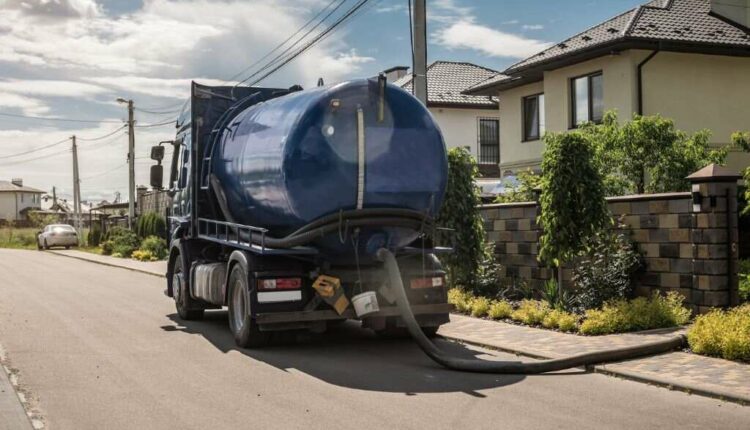How Septic Truck Works: A Complete Guide
In the waste management system, the unhonoured heroes, like septic trucks, often come in helpful ways that take pride in taking environmental responsibility. Septic trucks are a beneficial source for homeowners to keep the environment free of foul odours and prolong health.
They guarantee a hygienic environment that is beneficial for each (humans, animals and other living things). They remove all the unhygienic junk from our commercial and residential places and clean the environment for better community living.
They play a crucial role in maintaining a sound sanitation system. Want to know more about septic trucks and how they work? Join us as we will reveal the numerous benefits of septic trucks and much more.
What Is A Septic Truck?
A septic truck is also known as a septic tank or vacuum truck. A specialized truck or tank carries out liquid waste from sewage systems, cesspools, and septic tanks. It stores all the liquid waste and cleans it inside the gutter system, preventing contamination and foul odours and expanding a septic system‘s lifespan. Septic trucks are responsible for safely removing these waste materials and controlling health hazards and environmental pollution.
Why Is the Septic Truck Important?
Septic trucks ensure that residential and commercial areas are kept clean. The septic tanks fill with waste over time, necessitating proper disposal to prevent overflow, contamination and bad smell. Septic trucks come in handy to ensure that these waste materials are safely removed without causing any health risks or pollution to the environment.
How Does Septic Truck Work?
A septic truck or vacuum system is mainly used for cleaning septic tanks. Here’s how they both work together.
1- Function Of Septic Tank
The septic tank is built underground for the maintenance of the septic system. It’s made of fibreglass, plastic and concrete through which home wastewater flows from primary treatment. An anaerobic process breaks down solids and other organics converted into liquids or gasses.
2- Role Of Vacuum Truck
The vacuum truck is connected to a powerful pump that removes liquid, sludge and solids from the septic tank. The truck holds a sealed container that contains materials extracted from the septic tank. The container is sealed correctly to hold large amounts of materials inside it. The demand for vacuum trucks is needed when septic systems overflow and must be cleaned immediately.
3- Operation
The tank size is 300 to 5500 square feet. It can store up to 1500 to 2500 gallons of waste. The septic truck connects the operator with the giant hose of the septic vacuum pump, and the other end is inserted into the septic tank. It then extracts all the waste from it, which causes clogging inside the gutter system. It takes a little bit to remove almost everything from the tank. But this kind of operation works well for extending the septic system’s lifespan.
4- Vacuum Suction
The truck’s vacuum pump used a total force of suction to extract the materials from the septic tank into the truck’s container. This material can be anything like scum, sludge and liquid inside it. Due to this force, all solid materials break down into tiny particles, which remove clogging inside the gutter and allow a smooth and effective underwater septic system to restart.
5- Tank Particles
During the suction process, the vacuum truck’s tank contains a room or chamber that separates solid particles and liquids and doesn’t mix them. Now, most modern trucks have developed additional features that extend their function. One of the most popular features of modern trucks is water jets that further help convert solid materials into tiny chunks.
6- Disposal
Now, the last process is disposal. The waste is transported to a recommended treatment facility after emptying the septic tank and filling the truck container. Where the waste is further processed and disposed of according to the rules and regulations of the environment.
What Are The Benefits Of Septic Trucks?
Here are some benefits of septic trucks that are beneficial for environmental health.
-
Prevention Of Environmental Contamination:
Septic trucks are crucial for the contamination of water and soil sources. By actively transporting and removing waste from the septic system, these trucks can lessen the risks of pollution entering the environment, which is unhygienic for public health.
-
Public Health And Safety:
Public health and safety are the first and foremost things for a waste management municipality. That’s why they ensure proper waste and on-time removal should be done in the community. They are responsible for preventing disease and maintaining hygienic conditions and a safe living environment for the overall community.
-
Extended Lifespan Of Septic System:
Regularly pumping and maintaining the septic system according to waste management protocols can prolong its lifespan. If there are any persistent issues, call a reputable company for this. Barnes septic is an ideal choice for removing and cleaning septic systems.
-
Timely Waste Disposal:
Septic trucks provide the facility of time waste disposal. The property owners can schedule a monthly or yearly cleaning of septic tanks with septic truck owners so that a smooth process can go without blocking the gutter system and foul odours.
-
Regulation Compliance:
Sticking with environmental regulations is the main priority of the waste management system. They adhere to proper rules and cleaning systems so that no issues occur to the public or any living thing. So they kept everything under control and accurate inspection.
Final Thoughts
Septic trucks are the public and environmental need for almost every homeowner, and the best option for your septic and sewer services needs. Homeowners should adhere to the stick cleaning and maintaining guidelines so that no issue can erupt from their side.
However, any negligence can cause the blocking of this system, which further creates hazardous problems for the community. Inspecting your septic system properly monthly or weekly for smooth running and to ensure health safety is advisable.


Comments are closed.